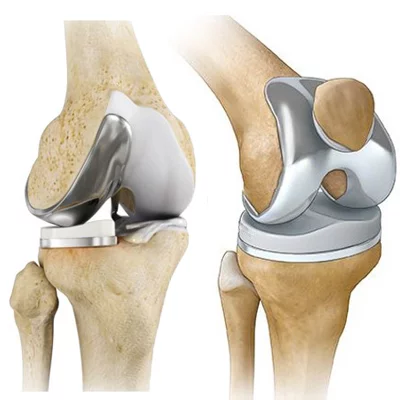Different Types of Bariatric Treatments
Bariatric surgery has become a crucial lifeline for individuals struggling with obesity and its associated health issues. These surgical procedures are designed to aid weight loss, improve overall health, and enhance the quality of life.
In this article, we will explore the different types of bariatric surgeries, each with its unique approach and benefits.

How Popular is the Bariatric Surgeries?
Bariatric surgeries have seen a substantial surge in popularity over the past decade. According to the American Society for Metabolic and Bariatric Surgery, the number of these procedures performed annually in the United States alone has risen significantly, from approximately 158,000 in 2011 to almost 252,000 in 2019.
This increasing trend speaks volumes about its growing acceptance as an effective solution to tackle obesity and its linked health conditions. A meta-analysis in 2021 found that bariatric surgery was associated with 59% and 30% reduction in all-cause mortality among obese adults with or without type 2 diabetes, respectively.
Bariatric Treatment Options
Sleeve Gastrectomy (Gastric Sleeve Surgery)
Sleeve gastrectomy involves removing a large portion of the stomach, leaving behind a banana-shaped sleeve. This procedure restricts food intake and reduces the production of hunger-inducing hormones, helping patients feel full sooner and consume fewer calories.
Considerations:
- Effective weight loss with reduced risk of nutritional deficiencies.
- May not be suitable for individuals with severe acid reflux.
- Irreversible procedure.
Learn more about gastric sleeve surgery.
Gastric Bypass Surgery
Gastric bypass surgery, also known as Roux-en-Y gastric bypass, is one of the most common and effective bariatric procedures. It involves creating a small pouch from the stomach and rerouting a section of the small intestine. This leads to reduced food intake and decreased calorie absorption, resulting in significant weight loss.
Considerations:
- Effective for sustained weight loss.
- Suitable for individuals with a higher BMI.
- Potential for vitamin and mineral deficiencies, requiring lifelong supplementation.
Learn more about gastric bypass surgery.
Adjustable Gastric Banding (Lap-Band)
Adjustable gastric banding, commonly known as Lap-Band surgery, involves placing a silicone band around the upper part of the stomach. This creates a smaller pouch, limiting food intake. One of the unique features of Lap-Band is its adjustability, allowing for personalized weight loss management.
Considerations:
- Reversible and adjustable.
- Slower weight loss compared to other procedures.
- Requires periodic adjustments.
Biliopancreatic Diversion with Duodenal Switch (BPD/DS)
Biliopancreatic diversion with duodenal switch is a complex bariatric procedure that combines restriction and malabsorption. It involves creating a smaller stomach pouch and rerouting a significant portion of the small intestine. This results in reduced food intake and decreased calorie absorption.
Considerations:
- Significant weight loss with potential for long-term success.
- Higher risk of nutritional deficiencies, requiring lifelong monitoring and supplementation.
- Not widely performed compared to other procedures.
As a non-surgical option: Intragastric Balloon
The intragastric balloon is a non-surgical bariatric option. A deflated balloon is inserted into the stomach and inflated to reduce its capacity, creating a feeling of fullness. This temporary solution can help kickstart weight loss efforts.
Considerations:
- Non-surgical and reversible.
- Limited duration of effectiveness (usually six months).
- Requires commitment to lifestyle changes for lasting results.
Learn more about gastric balloon.
Bariatric Surgery Before and After – Success Stories
Bariatric surgery has been reported to provide remarkable results in many cases. For instance, the case of a 39-year-old female with severe obesity underwent bariatric surgery and lost over 300 pounds. The patient reported improvements in her physical health, energy levels, and overall quality of life. Explore our Gallery to witness the incredible transformations of individuals who underwent Bariatric surgery. Discover their inspiring bariatric surgery before and after results!

Last Words from the More Clinics
Bariatric surgeries offer a range of options for individuals seeking to overcome obesity and its associated health challenges. Each type of surgery comes with its unique benefits and considerations, making it essential to consult with a healthcare professional to determine the most suitable approach.
At The More Clinics, we provide a comprehensive range of bariatric treatments for those looking to make positive and lasting changes to their health. Our team of experienced professionals will help you explore the different options available to you, enabling you to make informed decisions about your treatment journey. Contact us today to learn more!
GET A FREE CONSULTATION!
Let’s Start Planning Your Treatment %100 Guarantee Results.
Frequently Asked Questions
Bariatric surgery is generally recommended for individuals with a Body Mass Index (BMI) of 40 or above, or a BMI of 35 or above with one or more obesity-related health conditions such as diabetes or hypertension.
Bariatric surgery is a safe and effective procedure that can help improve the quality of life for individuals struggling with obesity. However, as with any surgical procedure, it carries certain risks including potential nutritional deficiencies or failure to lose adequate weight.
Most health insurance plans cover bariatric surgery. However, it is important to check with your insurance provider for specific coverage details.
The bariatric surgery cost can vary greatly depending on the type of procedure, as well as other factors such as geographic location. Generally speaking, sleeve gastrectomy and adjustable gastric banding tend to be the most affordable options while gastric bypass and BPD/DS are more expensive.






